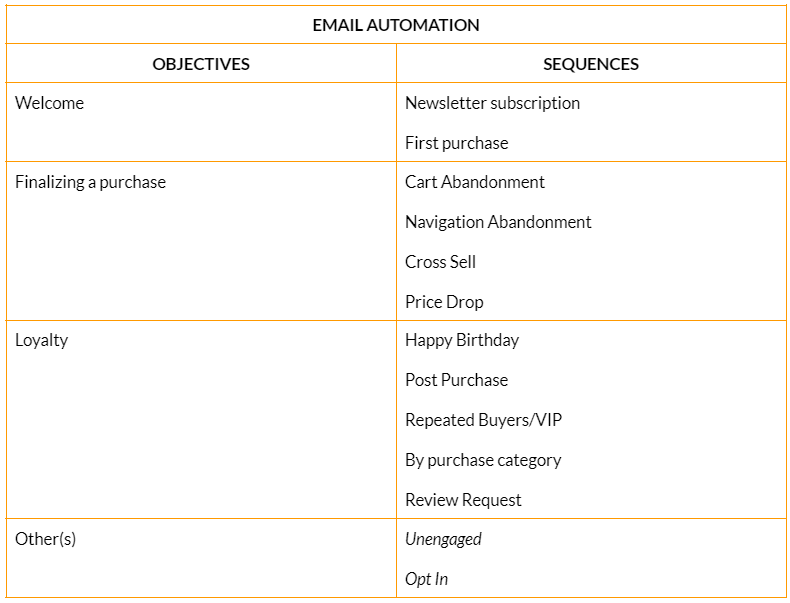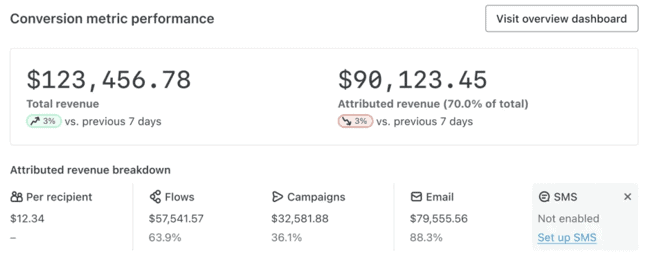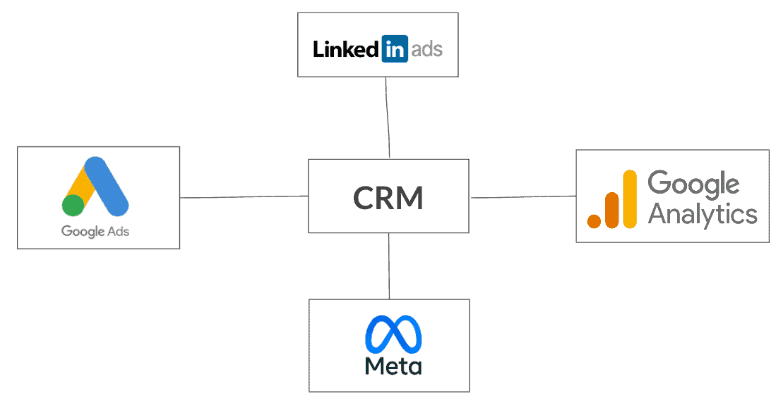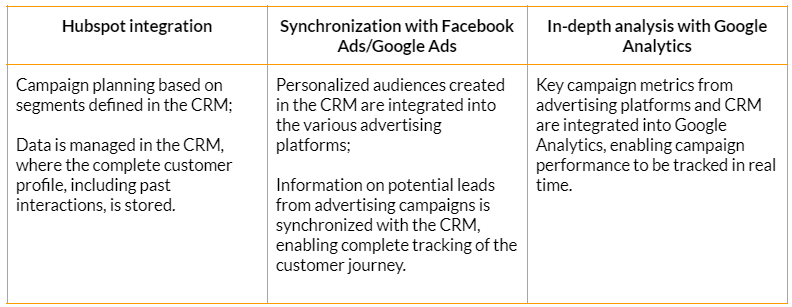In today’s business world, where competition is highly present, it is crucial to adopt a smart and data-driven marketing approach. Customer Relationship Management (CRM) proves to be a key tool to add precision to your marketing campaigns. Let’s explore how it can contribute to propelling your business to new heights.
Key Data + Targeted Campaigns: The power of a well-integrated CRM
Successful marketing campaigns rely on a deep understanding of your target audience. With a well-integrated CRM, you can consolidate customer data, revealing essential insights. Information such as purchasing preferences, online behavior and past interactions provide a solid foundation for the creation of targeted campaigns. This data is all the more important now that Law 25 has come into force.
Campaign personalization: A major asset not to be overlooked
Today’s consumers demand personalized experiences. CRM enables you to precisely segment your audience, allowing you to create highly personalized campaigns. From special offers to product recommendations, every interaction becomes an opportunity to strengthen the customer relationship and increase your chances of converting.
Automation: Efficiency and effectiveness in 1 package
The automation of marketing campaigns is an undeniable advantage of a well-used CRM. By automating repetitive tasks such as sending emails, tracking leads and managing responses, you gain valuable time to improve your strategy.

Concrete data for an optimized strategy
A powerful CRM not only facilitates the implementation of campaigns, it also provides in-depth metrics to assess their effectiveness. From open rates and conversions to customer lifecycle tracking, every aspect is measurable. This data enables rapid adjustments for a more agile marketing strategy.

Data integration & centralization

An effective CRM doesn’t work alone. It is essential to integrate it with other marketing tools such as social media platforms, analytics tools and content management applications. This integration forms an ecosystem where data is brought together, reinforcing the coherence of the campaign.

When tracking the customer journey becomes child’s play
A well-implemented CRM becomes the guiding thread that follows your prospects through the entire customer journey. From first interaction to conversion, every step is recorded. Automation and personalization ensure a smooth transition from prospect to customer, reinforcing loyalty.
The importance of First-Party Data
With the adoption of Law 25, it is now crucial to be equipped with a CRM in order to collect your own data, known as First-Party Data. Collected using a Pixel added to the website, this data is used for retargeting (remarketing) via ads, tracking and throughout the sales process. It’s also used to understand what an ideal customer or perfect match looks like, providing more information on how to reach new audiences. In concrete terms, every time a visitor arrives on the site, clicks on a page, consults a product or interacts with a publication on social media, the pixel collects and records this action.
In conclusion, managing marketing campaigns via a CRM offers a strategic, data-driven approach that, when used properly, can propel your business to success. From campaign personalization to intelligent automation, every aspect of this approach contributes to a more effective, results-driven marketing strategy.







